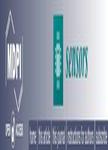版权所有:内蒙古大学图书馆 技术提供:维普资讯• 智图
内蒙古自治区呼和浩特市赛罕区大学西街235号 邮编: 010021

作者机构:Sungkyunkwan Univ Intelligent Syst Res Inst Suwon 440746 Gyeonggi Do South Korea
出 版 物:《SENSORS》 (传感器)
年 卷 期:2017年第17卷第11期
页 面:2472-2472页
核心收录:
学科分类:0710[理学-生物学] 071010[理学-生物化学与分子生物学] 0808[工学-电气工程] 07[理学] 0804[工学-仪器科学与技术] 0703[理学-化学]
基 金:"Space Initiative Program" of National Research Foundation (NRF) of Korea [NRF-2013M1A3A3A02042335] Korean Ministry of Science, ICT and Planning (MSIP) "3D Visual Recognition Project" of Korea Evaluation Institute of Industrial Technology (KEIT) [2015-10060160] "Robot Industry Fusion Core Technology Development Project" of KEIT [R0004590]
主 题:multisensor data fusion decentralized estimation distributed fusion inconsistent estimates spurious data unknown correlation
摘 要:The paradigm of multisensor data fusion has been evolved from a centralized architecture to a decentralized or distributed architecture along with the advancement in sensor and communication technologies. These days, distributed state estimation and data fusion has been widely explored in diverse fields of engineering and control due to its superior performance over the centralized one in terms of flexibility, robustness to failure and cost effectiveness in infrastructure and communication. However, distributed multisensor data fusion is not without technical challenges to overcome: namely, dealing with cross-correlation and inconsistency among state estimates and sensor data. In this paper, we review the key theories and methodologies of distributed multisensor data fusion available to date with a specific focus on handling unknown correlation and data inconsistency. We aim at providing readers with a unifying view out of individual theories and methodologies by presenting a formal analysis of their implications. Finally, several directions of future research are highlighted.